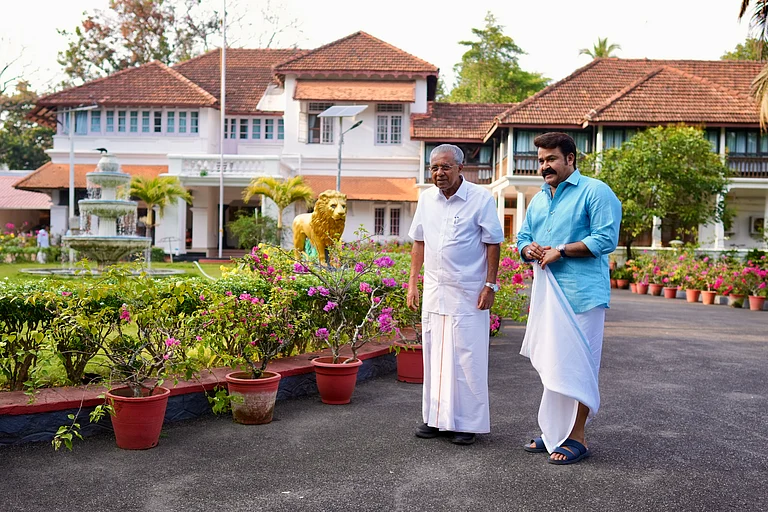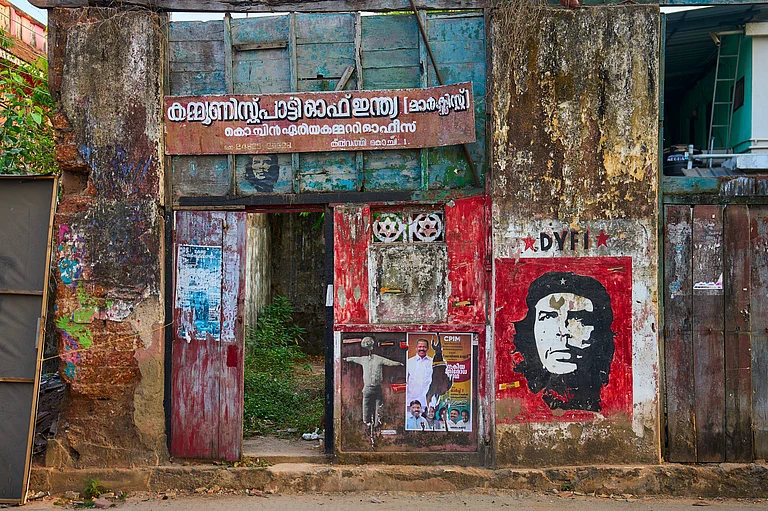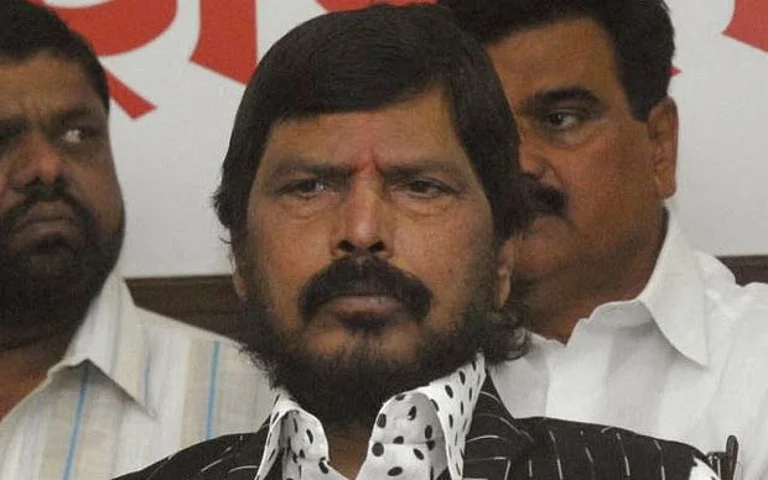Velikkakathu Sankaran (VS) Achuthanandan was a significant figure in mainstream leftist politics in India until a neurological stroke confined him to his residence approximately six years ago. Achuthanandan, a school dropout who went on to become the Chief Minister of Kerala at 82, epitomised Marxist ideology and mass leadership until his demise at the age of 101 on July 21, 2025.
He was admitted to a prominent private hospital in Thiruvananthapuram after experiencing a heart attack last week, where he received ventilator support, antimicrobial treatment, and continuous renal replacement therapy. Despite being the most prominent figure of the Indian left until six years ago, Achuthanandan maintained a subdued presence in Kerala after his stroke. His doctors had advised him and his family not to receive guests.
Keralites valued the idealism, transparency, and unblemished public life of the Communist Party of India (Marxist) luminary. Both critics and advocates concurred on one point: that he was an exceptional phenomenon—a politician who advocated and exemplified integrity in public life.
In recent months, the leader's sole connection with the public consisted of sporadic Facebook posts by his son, VA Arun Kumar, from his apartment in Barton Hills, Thiruvananthapuram, updating them on his health condition.
Regarded as the public's "conscience keeper", Achuthanandan was the final surviving member of the set of 32 communists who walked out from the undivided Communist Party of India in 1964 to establish the CPI(M). Following ideological divergences, he, alongside leaders such as Jyoti Basu, Basavapunnaya, and EMS Namboodiripad, left the national executive of the undivided party to form the CPI(M).
Throughout his political career, the veteran sustained a complicated relationship with the party he co-founded, frequently encountering disciplinary measures. In the latter years of his political career, he strongly opposed his party associate and current Kerala Chief Minister Pinarayi Vijayan, whom he accused of undermining communist principles and making compromises with class adversaries.
Achuthanandan consistently expressed concerns that the party was deviating from its fundamental tenets under Vijayan's leadership, asserting that the administration resembled a "bourgeois" regime similar to those of the Bharatiya Janata Party (BJP) or the Congress.
However, party cadres characterised him as resolute and uncompromising, as life was always tough for this advocate of the working class. He was only four years old when his mother passed away, and his father too died during his childhood. Notwithstanding these setbacks, he persisted and emerged as a symbol of hope for the marginalised.
The youngest of four siblings, he began working at his brother’s garment store after dropping out of formal education at the elementary level, primarily due to financial hardship. "I might have been able to pursue my education without books. But I lacked the stamina to endure daily starvation at school,” he remarked when journalists enquired about his interrupted schooling. Nevertheless, he remained a passionate reader all his life.
He went on to work at a coir factory, where he caught the attention of comrade P. Krishna Pillai, who is considered to be the progenitor of the Communist movement in Kerala. Under Pillai's direction, Achuthanandan engaged with agricultural labourers and farmers, facilitating their political organisation. This grassroots initiative fostered the emergence of a resolute activist, who was later hailed as the 'Fidel Castro of Kerala'.
Achuthanandan was subjected to severe police torture for participating in the Punnapra-Vayalar agitation, a pivotal event in the history of the Communist movement in Kerala. These experiences merely reinforced his communist beliefs. Consequently, he persisted as a hardliner within the party until the end.
A freedom fighter, he was incarcerated for more than five years and thereafter spent another four-and-a-half years in hiding during his party's ban.
Before his exit from active politics, he was the preeminent voice within the CPI(M), frequently exasperating his colleagues with his rigid adherence to communist theory and his uncompromising stance on governance, inclusive growth, and environmental issues.
Despite his silence for the past six years, Achuthanandan remained one of Kerala's most notable public figures. His silence frequently conveyed significant meaning, particularly when his party and the state administration encountered public censure for deviating from Leftist beliefs and embracing crony capitalism. The general populace perceived Achuthanandan as the final guardian of the state's working class, a committed advocate who has consistently protected the broader common interests.
His opponents within the party, especially Vijayan, remain reluctant to forgive and overlook the ideological conflict that he instigated and sustained for nearly two decades, commencing in 2000. Individuals who aligned with Achuthanandan during that ideological dispute were either marginalised or removed from the party, rendering the leader nearly a solitary force.
Political observer NP Chekkutty says, "The Vijayan faction successfully dismantled Achuthanandan's formerly robust support base by imposing party discipline and 'Leninist loyalty'. Many of Achuthanandan's devoted supporters are now politically marginalised, whereas those who realigned with Vijayan have been suitably compensated."
The makers of the contentious film 'Kerala Story' distorted a previous statement by Achuthanandan to portray him as anti-Muslim; however, the CPI(M) failed to defend him or contextualise his remark. Conversely, certain party members endorsed the portrayal of Achuthanandan as an anti-minority leader.
The measures implemented by the second Pinarayi government have markedly deviated from those that Achuthanandan criticised or considered anti-Marxist. Critics contend that the fundamental battle against neoliberalism and crony capitalism, once regarded by Achuthanandan as the party's central emphasis, has diminished in significance. Coercive land grabs and ecologically detrimental enterprises have proliferated, notwithstanding Achuthanandan's historical resistance to such tactics.
Although a party veteran, he is the one political leader who has garnered admiration across generations. In commemoration of his centenary, multitudes, particularly youth, have used social media to recount memories of his contributions, highlighting the rapport he established with them. His influence on the youth exemplifies the lasting effect of his political ideas.
He was admitted to a prominent private hospital in Thiruvananthapuram after experiencing a heart attack last week, where he received ventilator support, antimicrobial treatment, and continuous renal replacement therapy. Despite being the most prominent figure of the Indian left until six years ago, Achuthanandan maintained a subdued presence in Kerala after his stroke. His doctors had advised him and his family not to receive guests.
Keralites valued the idealism, transparency, and unblemished public life of the Communist Party of India (Marxist) luminary. Both critics and advocates concurred on one point: that he was an exceptional phenomenon—a politician who advocated and exemplified integrity in public life.
In recent months, the leader's sole connection with the public consisted of sporadic Facebook posts by his son, VA Arun Kumar, from his apartment in Barton Hills, Thiruvananthapuram, updating them on his health condition.
The measures implemented by the second Pinarayi government have markedly deviated from those that Achuthanandan criticised or considered anti-Marxist. Critics contend that the fundamental battle against neoliberalism and crony capitalism, once regarded by Achuthanandan as the party's central emphasis, has diminished in significance. Coercive land grabs and ecologically detrimental enterprises have proliferated, notwithstanding Achuthanandan's historical resistance to such tactics.
Although a party veteran, he is the one political leader who has garnered admiration across generations. In commemoration of his centenary, multitudes, particularly youth, have used social media to recount memories of his contributions, highlighting the rapport he established with them. His influence on the youth exemplifies the lasting effect of his political ideas.
The veteran leader's conviction prompted him to start a campaign in 1997 against the reclamation of paddy land, which grew into the Vettinirathal Samaram, a pivotal movement for land rights in Kerala. This movement entailed VS supporters destroying crops cultivated on transformed paddy fields. In 2008, a decade later, the government under VS enacted the Kerala Conservation of Paddy Land and Wetland Act. The Vijayan administration has subsequently diluted its rules to advantage land mafias.
The Punnapra-Vayalar insurrection was a response to the Travancore Diwan's efforts to implement self-government and embrace an American-style governance framework. This resulted in a widespread insurrection, during which Achuthanandan was tasked with clandestine operations to mobilise the populace. He was arrested at Poonjar and subjected to torture at the Pala police station.
In 1980, he was appointed State Secretary of the party, and in 1985, he became a member of the Politburo, the party's main decision-making body. An altercation with Vijayan led to his expulsion from the Politburo in 2009.
A hardliner, VS had a heated battle with party associate and former chief minister EK Nayanar, culminating in his unexpected defeat in the 1996 Assembly election in Mararikulam. This loss did not dissuade him. He transformed from a basic Marxist leader into a distinguished mass leader, actively participating in agricultural and environmental concerns in Palakkad and other areas across the state.
His participation in the Edamalayar hydropower tunnel construction case led to the conviction of former minister R. Balakrishna Pillai, signifying the first instance in India where a political leader was imprisoned for corruption by the Supreme Court.
His oratory, marked by tone modulation and stress on particular syllables to underscore salient points, captivated audiences at public gatherings. His bold demeanour frequently conflicted with the goals of the CPI(M), as evidenced by his 2012 encounter with KK Rema, the widow of the murdered Revolutionary Marxist Party leader TP Chandrasekharan.
VK Sasidharan, his former additional private secretary, who, along with two other colleagues, was sacked from the party in 2013, recounted how Achuthanadan swiftly grasped the essential elements of free software politics following a brief orientation in 2001. As Chief Minister, he made significant contributions to the advancement of Kerala's information technology sector.
Following the Left Democratic Front (LDF)'s victory in the 2016 Kerala Assembly elections, Achuthanandan, the campaign leader, was designated as head of the State Administrative Reforms Commission. Subsequently, he quit, citing age-related concerns.
Achuthanandan's steadfast position prompted CPI(M) national general secretary Sitaram Yechury to characterise him as the party's Fidel Castro.
His last public appearance was on October 18, 2019, at a campaign rally for the CPI(M) candidate vying for the state Assembly seat in Vattiyoorkavu. This event took place just days before his 96th birthday, and spoke there for 45 minutes. Within six days, he suffered the cerebral stroke that compelled him to retreat from public life.
Achuthanandan occupies a prominent position among Indian communist stalwarts such as B.T. Ranadive, A.K. Gopalan, and E.M.S.
He was a fervent proponent of anti-corruption and a beacon of honesty and transparency in public affairs. He was an early proponent of green politics in the country and, later in his political career, he tried to link communism with environmental concerns. He consistently endorsed civil society movements and their critical issues, even when these conflicted with his party's positions, resulting in multiple disciplinary charges against him.
Achuthanandan supported numerous current leaders within the organisation, including Vijayan, while also confronting them when they deviated from Marxism-Leninism's fundamental tenets. "The conflict with Vijayan frequently escalated to terrible levels. His focus on Vijayan in the SNC-Lavalin corruption case led to his expulsion from the Politburo, the party's paramount decision-making entity.
To the cadres and civic society, he was consistently a valiant combatant. Whether in office or not, he opposed corporations that exploited natural resources, such as water and biodiversity-rich forests," notes Malayalam writer and actor Joy Mathew.
Achuthanadan opposed the model of growth that neglects the apprehensions of impacted populations. Notwithstanding his modest educational background, he emerged as an advocate for free software and a proponent of campaigns opposing monopolistic practices in the IT sector. His adherence to orthodox communism rendered him intolerable to even his party associates during critical moments. “However, it was the same quality that endeared him to the populace,” says Joseph.
Observers think that Achuthanandan's extensive appeal primarily stems from his simplicity and straightforward demeanour. At his peak, he was unreserved in voicing his objections to irregularities and breaches of rights. It is to his credit that anytime he recognised the fallibility of his positions, he promptly confessed it publicly.
Whether tackling the water exploitation issue in Thiruvananthapuram or examining the intricacies of the multimillion-dollar software dispute involving multinational corporations, Achuthanandan commanded significant interest. The electorate in Kerala had confidence in him.
Throughout the years, he pursued corruption cases and focused on the mafia that benefitted from illicit operations, including cannabis, sandalwood, and land exploitation.
His objectives encompassed the sand mafia that ravaged Kerala's rivers, the sandalwood mafia that exploited the forests of Idukki, substantial plantation corporations that infringed upon public land, and tourist resort operators who compromised Munnar for personal profit. He also took on sex traffickers who exploited women and underage girls, along with private hospital proprietors implicated in the trafficking of human body parts.
In addition to his political party, Achuthanandan secured backing from other factions, including tribal communities, Dalits, women, and the youth.
For Indian Marxists, Achuthanandan epitomised one of the last remaining communist stalwarts. His political strategy was perceptive, although he always refrained from opportunism.





























